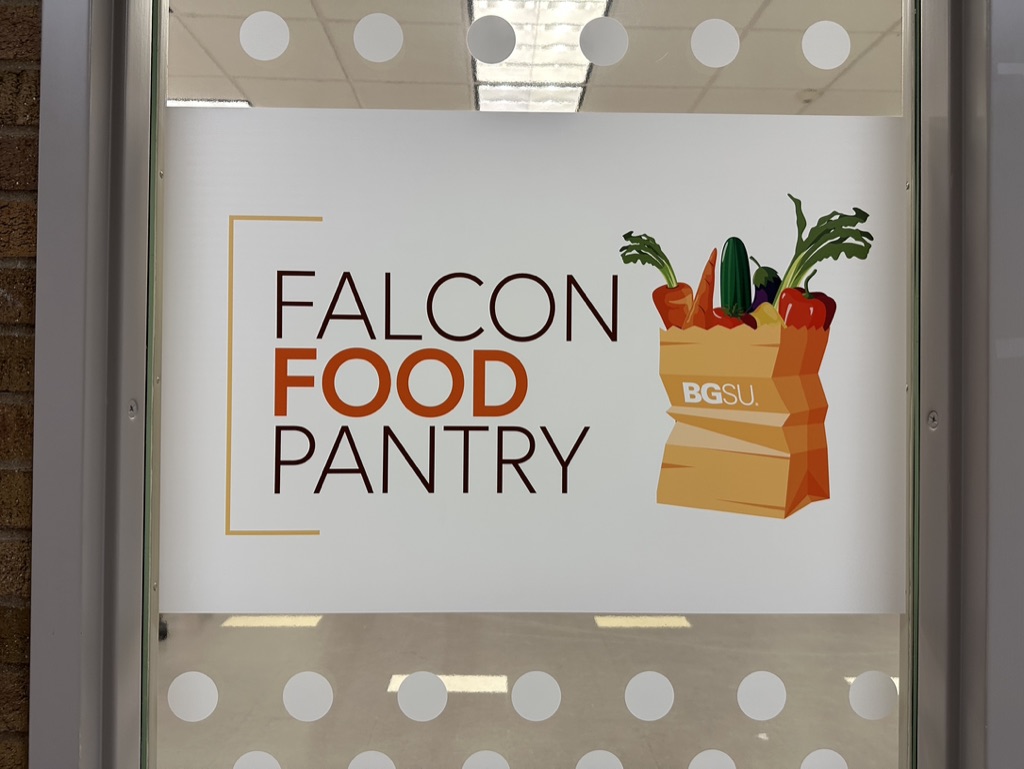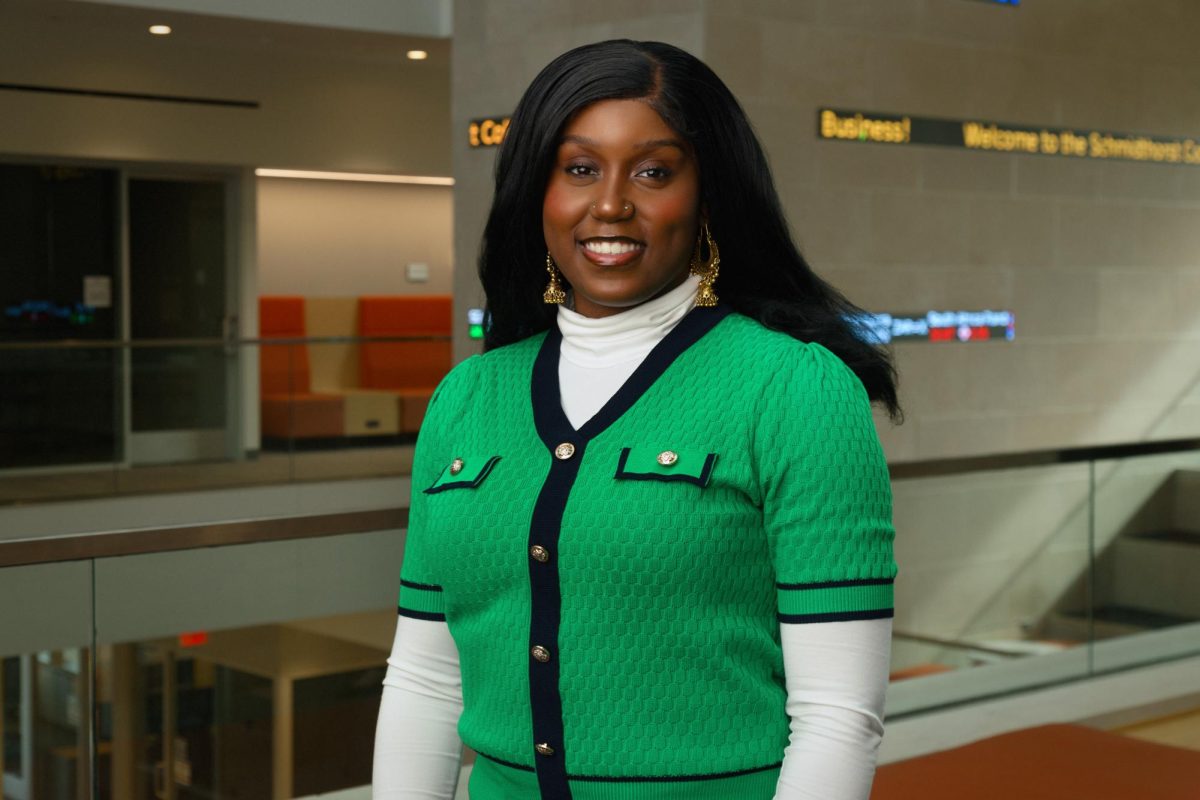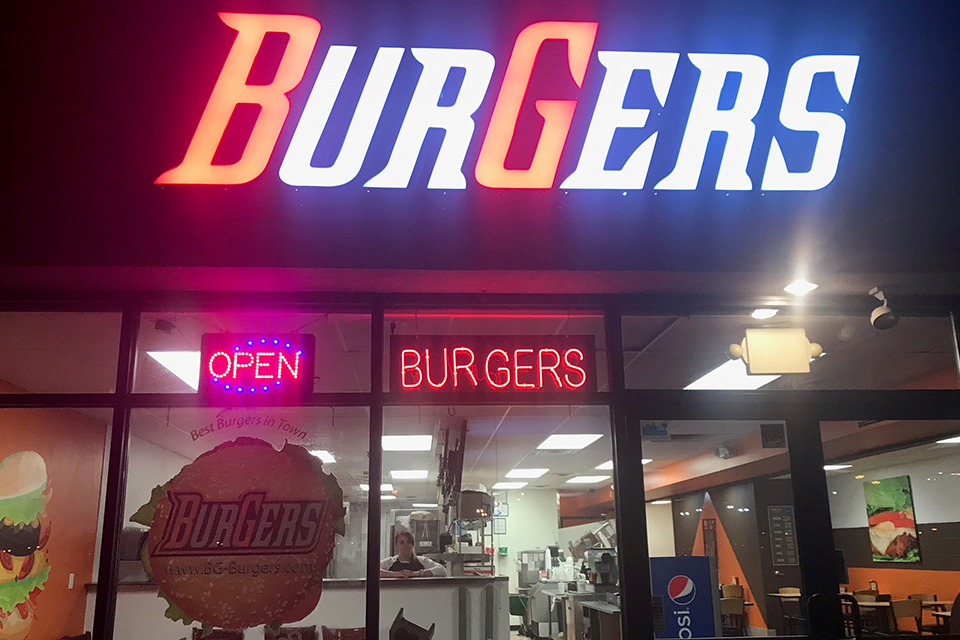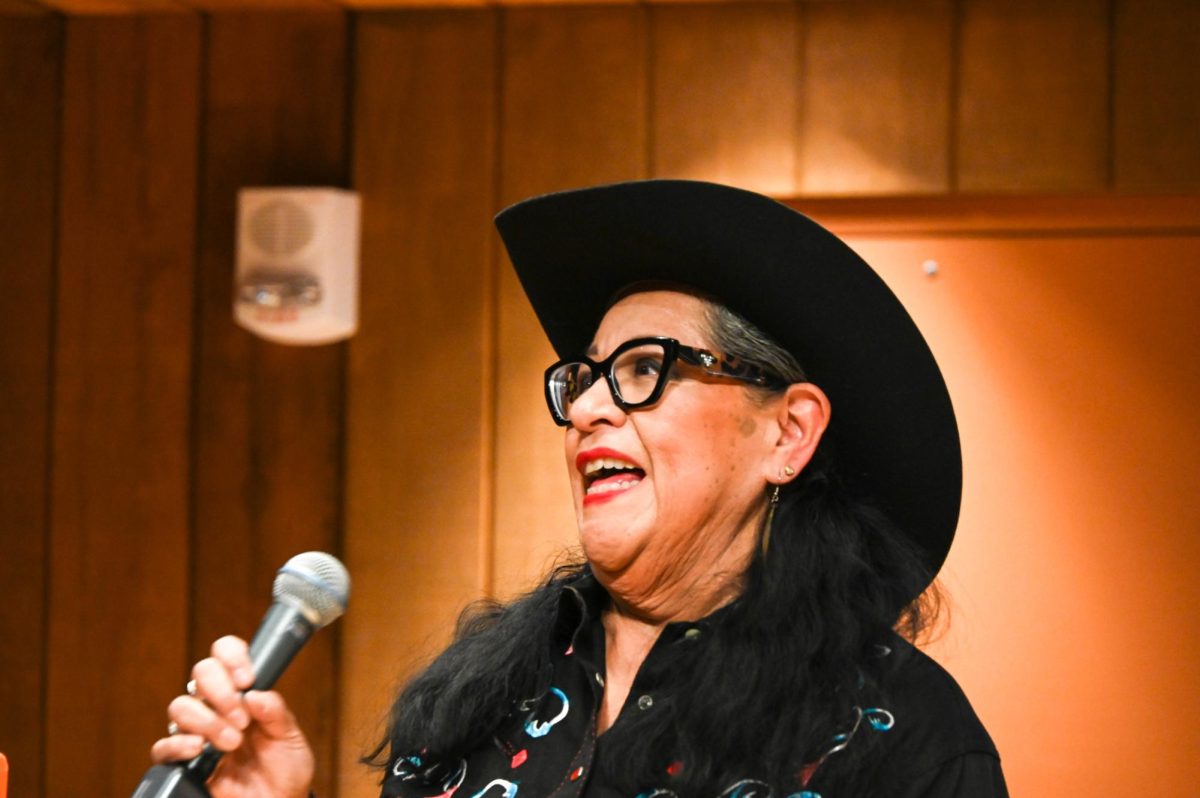14.8% of people living in Wood County experience food insecurity every year. This means not only are people unable to access groceries and food for their families, but they may even be unsure of where their next meal will come from.
Food insecurity is a widespread issue across the nation. Defined by the USDA, food insecurity is “a lack of consistent access to enough food for every person in a household to live an active, healthy life.”
Though students are able to meet the expense of classes, it does not mean that they are able to afford groceries and food every week. Throughout the 2021-2022 school year, 21,586 students experienced homelessness and food insecurity across Ohio, according to the state Department of Education
The Falcon Food Pantry was first introduced in 2022 by director Shannon Orr in Central Hall on campus. The pantry is accessible to students, faculty and staff and provides a multitude of different resources from fresh vegetables and pantry staples to diapers and other household items.
“I’m from Texas and I came to Bowling Green as a graduate student. Through low income and not really being able to afford rent, it meant we couldn’t really afford food,” said graduate student manager of the Falcon Food Pantry, Ashley Alvarez.
Alvarez runs the food pantry with other interns such as Nadia Skolnick and Emma Carpenter.
“I feel like it’s a fun place for students to come. We play music, and we greet the people who come in. It’s a place for students on campus to come when they’re struggling and can’t afford food or basic hygienic things,” said Carpenter.
FALCON FOOD PANTRY
Falcon Food Pantry partners with the Brown Bag Food Project and receives orders from the Northwestern Food Bank paid for by the University. Donations can be dropped off in room 109 of Central Hall, and for items of higher priority, the interns will go shopping at the grocery store.
“We always accept donations. Sometimes we struggle to get certain items. Last year I struggled to get laundry detergent and through the pantry, it made a huge difference because we were able to wash clothes that week,” said Alvarez.
Through social media, the Food Pantry shares new items along with surveys asking what the students would like to see at the pantry. Recently introduced through the fall semester, the University has made it a requirement for all professors to include the food pantry in their syllabi for the year.
“In the future students can expect an even fuller food pantry. This past week so far we’ve already had 150 students come through,” said Carpenter. “Last year in the first month we had a total of 400 students, and so being able to help this many people is exciting.”
With the upcoming winter, Alvarez and the team have started brainstorming other ways that they can help students. Collecting batteries, coats, candles and other items, the pantry plans to distribute the items to those who need them throughout the season.
“I think the most important thing is everyone has a different story and background. We are here to help serve others, not ourselves. The food pantry is really helping a lot of people. So many students came in and didn’t even realize that we were here,” said Alvarez.
On campus, students can donate food swipes from their meal plans to others who may not have enough to feed themselves. In the future, the Falcon Food Pantry is looking to partner with BGSU dining in the future in order to create recipes and work towards a no-waste system.
Food insecurity is wider and affects more than what people see. Without a secure way to access food, it can lead to a multitude of health-related issues.
According to the National Institute of Health, “Food insecurity and the lack of access to affordable nutritious food is associated with increased risk of multiple chronic health conditions such as diabetes, obesity, heart disease, mental health disorders, and other chronic diseases.”
Along with those conditions, people who experience food insecurity will also have side effects such as issues with sleep, studies and energy levels. All of these issues can greatly impact one’s social life.
OFF-CAMPUS PANTRIES
Besides the Falcon Food Pantry, there are other options for students and the community to turn to. The First United Methodist Church on Wooster St. offers a drive-thru food pantry. Families and anyone from Wood County can drive up and receive a pre-packaged box of food, household supplies, and personal hygiene items.
“We never turn anyone away. Anyone can drive through, and one of our volunteers will come and register them. Students are able to come through as they need, and as of right now, we serve about 60 families per month. We have a lot of older adults that don’t have transportation or are not able to get in and out easily,” said Margie Harris, acting director of the Methodist food pantry.
The United Methodist food pantry partners with the Northwest Ohio Food Bank along with the Seagate Food Bank. Through donations, the church is able to provide around $95 worth of food to each of their families per month.
“Not every food pantry is as lucky as we are. We have some very generous people here in our community who have donated on a regular basis per month to help keep us going, and we have been able to access some grants to purchase commercial-sized coolers. That way, we’re able to give fresh milk, eggs, meat, and other things to families every week,” said Harris.
Besides the University and the First United Methodist Church, students and community members are able to visit and utilize other food pantries around the area.
The Brown Bag Food Project, Wood County Area Ministries, St. Thomas More Food Pantry, St. Aloysius Food Pantry, and BG Christian Food Pantry are all local Bowling Green food pantries available to the public.
“At the end of the day, we want students and whoever comes in to feel heard and appreciated, because everyone who goes through here is going through their own experience and isn’t always open to sharing their private situations,” said Alvarez.




















